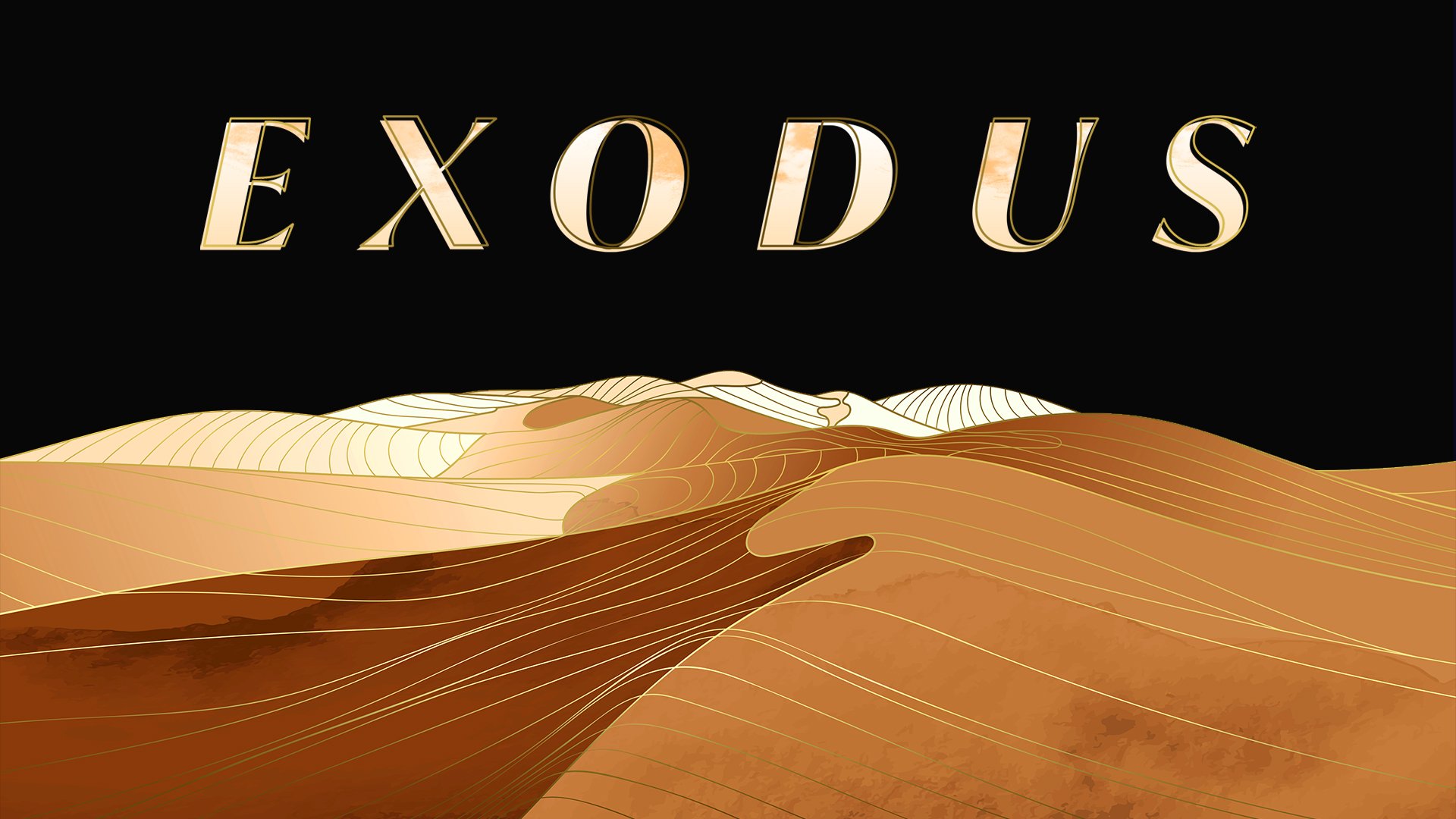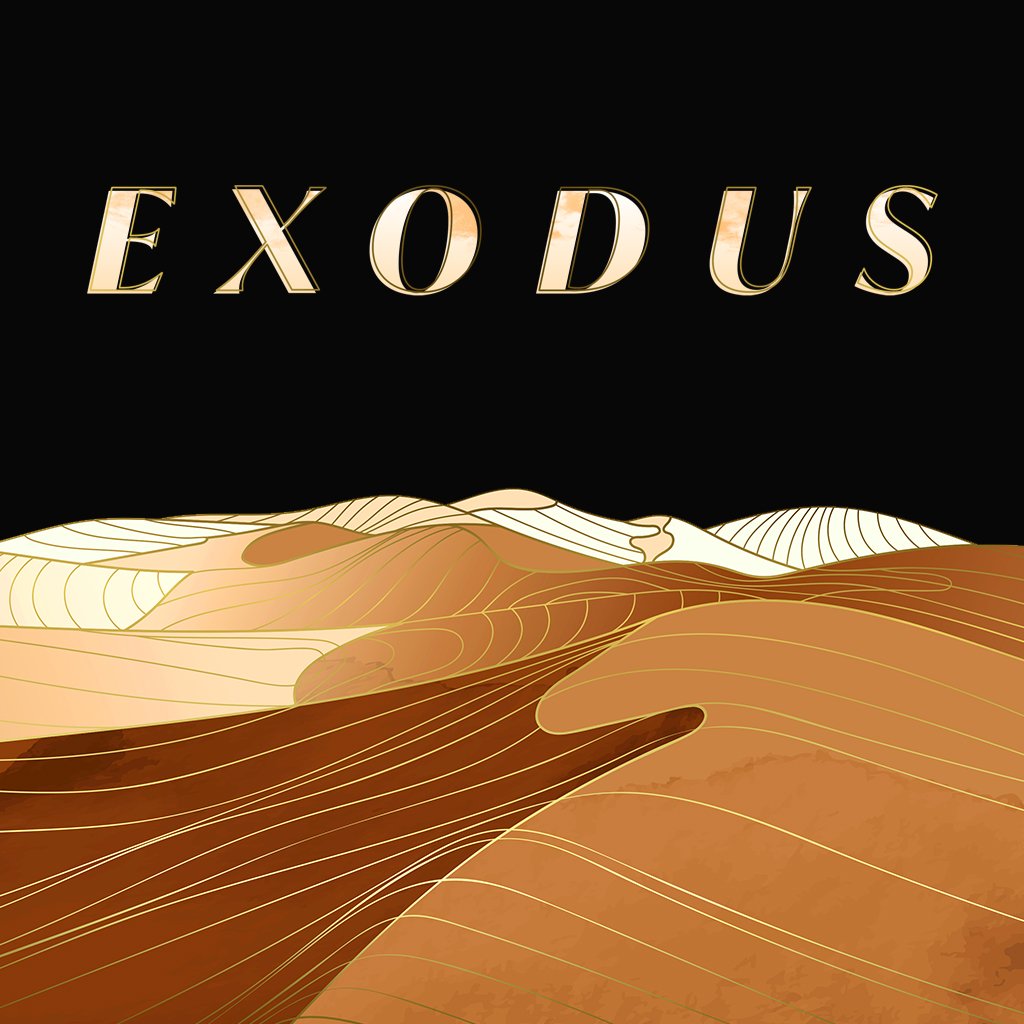Week 6
Series
Description
How do we make the journey from slavery to freedom? Our salvation requires a power outside ourselves, a force greater than the tyranny that rules us. The book of Exodus shows us a people enslaved by great evil, both political and spiritual. God displays his might and heart in rescuing Israel out of bondage, a mission foreshadowing his ultimate dedication to free all his people from slavery to sin. Join us in this study of Exodus as we see in the Israelites our own need for a Redeemer and are moved to worship Yahweh for his power to save.
Main
Passage
Exodus 6:14–7:13
These are the ancestors of some of the clans of Israel:
The sons of Reuben, Israel’s oldest son, were Hanoch, Pallu, Hezron, and Carmi. Their descendants became the clans of Reuben.
The sons of Simeon were Jemuel, Jamin, Ohad, Jakin, Zohar, and Shaul. (Shaul’s mother was a Canaanite woman.) Their descendants became the clans of Simeon.
These are the descendants of Levi, as listed in their family records: The sons of Levi were Gershon, Kohath, and Merari. (Levi lived to be 137 years old.)
The descendants of Gershon included Libni and Shimei, each of whom became the ancestor of a clan.
The descendants of Kohath included Amram, Izhar, Hebron, and Uzziel. (Kohath lived to be 133 years old.)
The descendants of Merari included Mahli and Mushi.
These are the clans of the Levites, as listed in their family records.
Amram married his father’s sister Jochebed, and she gave birth to his sons, Aaron and Moses. (Amram lived to be 137 years old.)
The sons of Izhar were Korah, Nepheg, and Zicri.
The sons of Uzziel were Mishael, Elzaphan, and Sithri.
Aaron married Elisheba, the daughter of Amminadab and sister of Nahshon, and she gave birth to his sons, Nadab, Abihu, Eleazar, and Ithamar.
The sons of Korah were Assir, Elkanah, and Abiasaph. Their descendants became the clans of Korah.
Eleazar son of Aaron married one of the daughters of Putiel, and she gave birth to his son, Phinehas.
These are the ancestors of the Levite families, listed according to their clans.
The Aaron and Moses named in this list are the same ones to whom the Lord said, “Lead the people of Israel out of the land of Egypt like an army.” It was Moses and Aaron who spoke to Pharaoh, the king of Egypt, about leading the people of Israel out of Egypt.
When the Lord spoke to Moses in the land of Egypt, he said to him, “I am the Lord! Tell Pharaoh, the king of Egypt, everything I am telling you.” But Moses argued with the Lord, saying, “I can’t do it! I’m such a clumsy speaker! Why should Pharaoh listen to me?”
Then the Lord said to Moses, “Pay close attention to this. I will make you seem like God to Pharaoh, and your brother, Aaron, will be your prophet. Tell Aaron everything I command you, and Aaron must command Pharaoh to let the people of Israel leave his country. But I will make Pharaoh’s heart stubborn so I can multiply my miraculous signs and wonders in the land of Egypt. Even then Pharaoh will refuse to listen to you. So I will bring down my fist on Egypt. Then I will rescue my forces, my people, the Israelites, from the land of Egypt with great acts of judgment. When I raise my powerful hand and bring out the Israelites, the Egyptians will know that I am the Lord.”
So Moses and Aaron did just as the Lord had commanded them. Moses was eighty years old, and Aaron was eighty-three when they made their demands to Pharaoh.
Then the Lord said to Moses and Aaron, “Pharaoh will demand, ‘Show me a miracle.’ When he does this, say to Aaron, ‘Take your staff and throw it down in front of Pharaoh, and it will become a serpent.’”
So Moses and Aaron went to Pharaoh and did what the Lord had commanded them. Aaron threw down his staff before Pharaoh and his officials, and it became a serpent! Then Pharaoh called in his own wise men and sorcerers, and these Egyptian magicians did the same thing with their magic. They threw down their staffs, which also became serpents! But then Aaron’s staff swallowed up their staffs. Pharaoh’s heart, however, remained hard. He still refused to listen, just as the Lord had predicted.
Related
Passages
Exodus 6:14–7:13 calls us to align ourselves with God and his purposes, recognizing that he is the true Judge. In Exodus, God establishes Moses and Aaron as his appointed messengers and begins his confrontation with Pharaoh, making it clear that there is no neutral ground: one is either with God or against him. James 4:1–5:8 warns against pride, worldliness, and presumption, showing how divided loyalties make us enemies of God. Galatians 6:7–8 reinforces the principle that we reap what we sow: those who live according to the flesh will face corruption, while those who live by the Spirit will reap eternal life. 2 Timothy 3:1–9 describes those who oppose the truth, like Jannes and Jambres, resisting God while appearing powerful, yet their folly is exposed. Hebrews 3:1–19 recalls how Israel, despite having Moses, hardened their hearts and fell under judgment, a reminder that urges us not to repeat their unbelief. Philippians 3:17–21 offers a contrast between those who live as enemies of the cross and those whose citizenship is in heaven, eagerly awaiting the return of Christ. Together, these passages underscore the urgency of choosing God’s side, listening to his word, and faithfully walking in his ways.


Sermon Series Page
Check out our Sermon Series page to find teachings, study questions, and other resources for this series.
